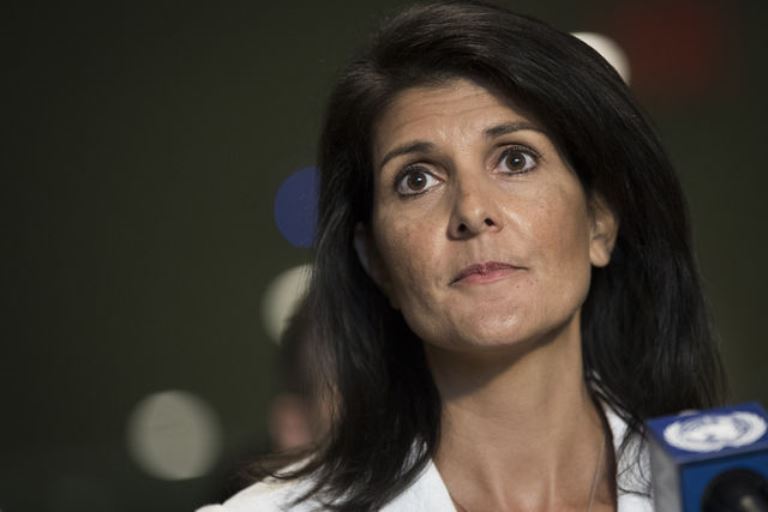NEW YORK – Members of Syria’s opposition and Russia agreed on Wednesday that the shaky cease-fire in Syria must be maintained and consolidated before any progress can be made toward a political settlement in the latest round of United Nations-backed negotiations in Geneva.
In January, Russia, Iran and Turkey agreed to monitor and enforce the nationwide cease-fire that came into effect in December. However, parties in Syria continue to violate the truce, threatening to unravel Moscow’s recent progress in bringing the warring sides to the negotiating table in the Kazakh capital of Astana.
If Russia is able to secure a lasting and respected cease-fire, Moscow would then have to tackle the task of providing parameters for a political transition that both sides – and their respective foreign partners – will accept. The Kremlin must also answer one of the most controversial questions about the conflict: Does Syrian president Bashar al-Assad have a role in Syria’s political future?
In a conversation hosted by the Council on Foreign Relations, Syria Deeply founder Lara Setrakian spoke to the newly appointed U.S. Permanent Representative to the United Nations, Nikki Haley, about the ongoing negotiations and the obstacles facing any potential political solution for Syria.

U.S. Ambassador to the United Nation Nikki Haley speaks to reporters at the United Nations headquarters, March 27, 2017 in New York City. Drew Angerer/Getty Images/AFP
Syria Deeply: What does Russia need to do to achieve a political settlement in Syria? And does it include the resignation and a timeline for the resignation of President Bashar al-Assad?
Nikki Haley: That is the question of the day. You know, I think that Russia has tried to find a political solution. But they tried to find a political solution with Assad and that’s a problem. I’m not gonna go back into: “Should Assad be in or out?” Been there, done that, right? … in terms of what the U.S. has done. But I will tell you that he is a big hindrance in trying to move forward; Iran is a big hindrance in trying to move forward.
I think that what we have seen is [U.N. Special Envoy Staffan] de Mistura who has been there, when you look and you talk to him about the status of where we are and what’s happening in Syria, he does desperately want the U.S. to be a part of finding a solution to that. And so I think that it would be … this is one of the situations where the U.S. and Russia can definitely talk and say: “OK, how can we get to a better solution here?” But the issue of Assad is gonna be there.
I have to tell you, when you have a leader who will go so far as to use chemical weapons on their own people, you have to wonder if that’s somebody you can even work with. And so I think that’s the dilemma everyone has, is how do you deal with a government that we wish wasn’t there and deal with other countries who have all gotten involved – there’s a lot of players there in Syria – and how do you go to try and really lift up those poor people in Syria that aren’t getting any help or assistance, and find a way to build back up a government? It’s a hard answer, no matter which way you look at it.
I do hope that the international community realizes: “Let’s not get egos in here. Let’s not be … power hungry. Let’s really look at the fact that if we don’t have a stable Syria; we don’t have a stable region.” And it’s only gonna get worse. It really is an international threat right now, and we’ve got to find a solution to it.
Never miss an update. Sign up here for our Syria Deeply newsletter to receive weekly updates, special reports and featured insights on one of the most critical issues of our time.